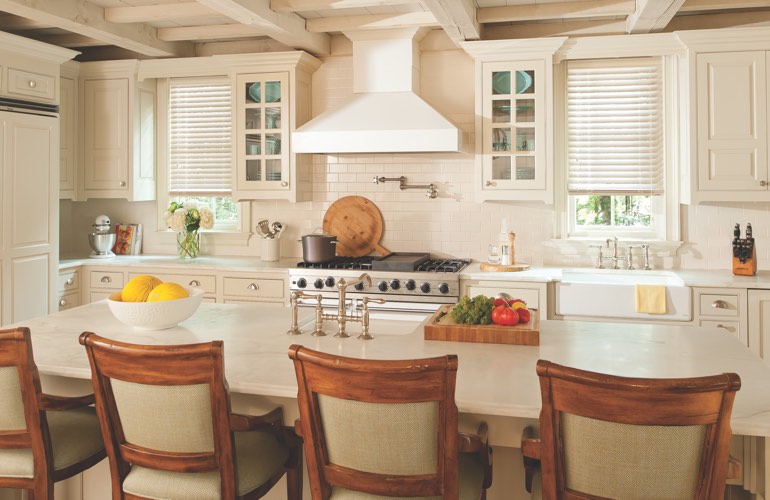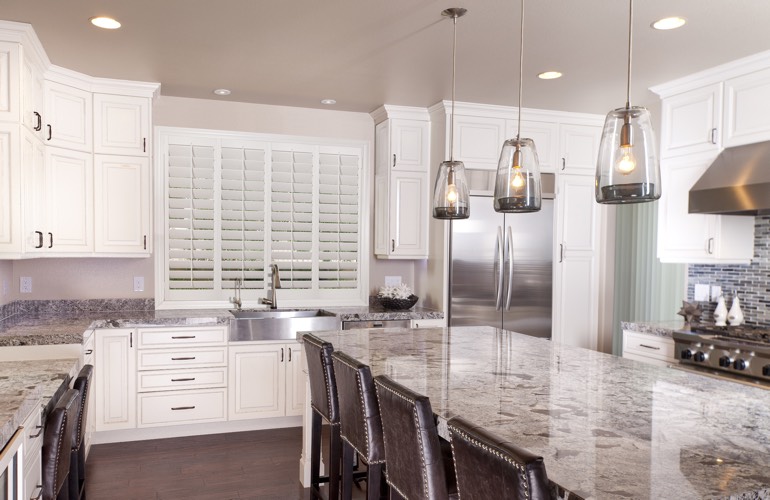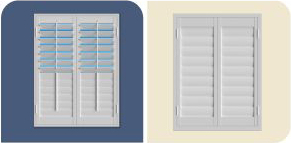
Why Some Homeowners In Boston Confuse Plantation Blinds And Plantation Shutters
When homeowners in the Boston area give us a call for a quote, they might accidentally ask for plantation blinds. But plantation blinds is the wrong term for the window covering they want.
What most people refer to as “plantation blinds” are actually plantation shutters.
The word “plantation” is synonymous with interior shuttersnot blinds. And the term “plantation” refers to the size and style of the horizontal louvers.
Blinds have thin horizontal slats that most people call slats. But these slats are not thick enough or wide enough to be “plantation” style.
Even some blind companies call blinds “plantation,” although that term has been associated with custom interior shutters. Plantation shutters may be mistaken for blinds at a glance. But the differences between these two window treatments are numerous.
How Plantation Shutters Are Different From Blinds


Plantation Shutters Are More Durable Than Blinds
Premium plantation shutters can be manufactured from reclaimed wood, synthetic wood, or hardwood. These materials make for a sturdy window treatment that lasts for many more years than a blind. And when you buy shutters with UV stabilizer-infused paint, their color won’t yellow.
Unlike shutters, blinds may have a rod to move the slats. And they have a series of cords to hold the slats up. Those two components, in addition to the thin slats, are notorious for busting.
Blinds are also ineffective at giving you control over temperature and light. And they tend to yellow over extended periods of sun exposure, unlike quality shutters.
They’re Highly Energy Efficient
The material a window treatment is made from greatly affects its energy efficiency. Plantation shutters, with their wood and synthetic wood louvers, are known to be the most energy-efficient window treatment in Boston. But it’s the exclusive weatherstripping on Polywood® shutters that’s made to help insulate against airflow. That’s how Polywood is 1600% more energy efficient than an aluminum blind.
When you close a blind, there are holes where the cords are. The slats aren’t tight against each other. And there’s space on both sides of the blind where air can escape through. All these weak points make blinds less energy efficient compared to quality plantation shutters that close with little to no gaps.
They Accentuate The Shape Of Your Window
Another thing to think about is that the only shape blinds are available in is rectangular. And if your window are circular, arched, triangular, or octagonal, blinds will cover up the shape rather than highlight it.
Plantation shutters however are ideal for specialty-shaped windows. They are custom built to every arch, angle, and corner. The finished shutters is a window treatment that operates smoothly. And it will look stunning and makes the window shape pop.
They Give Your House A Custom Look
Yes, you can get blinds in a variety of colors, textures, and finishes. They can even be cordless and motorized. But no matter what combination you choose, blinds don’t look as custom as shutters do.
Plantation shutters in Boston are available in Polywood, Ovation® wood, and reclaimed wood. And there’s more than 300,000 ways to customize these window treatments to fit your décor.
Usually, shutters are installed with a frame that highlights the shutter panels and accentuates the corners. The shutters make a fashion statement in and of themselves. And as a permanent feature of your home, they adds to its appraisal value.
One example of an exceptional way to customize your window coverings is to have the shutters made from reclaimed wood. No two shutter louvers - no two shutter panels - have identical holes, colors, or marks. It’s the ultimate custom window treatment in the Boston area.


